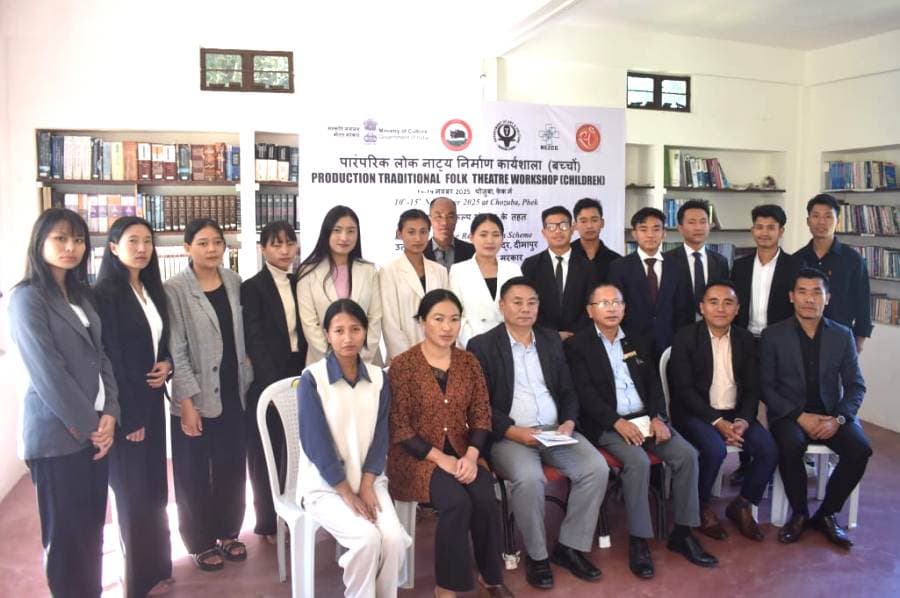“The Light at Chozuba” drama recounts the early Christian history of Chozuba village, blending cultural heritage with vivid storytelling.
Share

DIMAPUR — A drama production titled “The Light at Chozuba”, under the Production Traditional Folk Theatre Workshop (Children’s Theatre), has been completed under the sponsorship of the North East Zone Cultural Centre (NEZCC) Dimapur and the Art and Culture department, Government of Nagaland, in collaboration with Nagaland Theological College, Chozuba, Phek.
According to an update, the drama is inspired by the earliest accounts of the emergence of Christianity in Chozuba village and captures a significant transformational period in the region’s religious and cultural history.
The production was conceptualised with the primary objective of educating the younger generation and the general public on how Christianity first dawned in Chozuba. It also aimed to provide a deeper understanding of the cultural heritage, tribal identity, and the traditions of the forefathers that shaped the early mission era.
Through dramatisation, it highlights the sacrifices, challenges, and triumphant moments of both the early missionaries and the local pioneers who embraced the Gospel despite severe opposition and uncertainty.
The drama was developed with the intention to persevere and retell the historical journey of the first evangelists who brought Christianity to Chozuba, to help the viewers appreciate the struggles faced by the early converts, including social rejection, cultural conflicts, and spiritual awakening.
Also read: Art and Culture department prepares for Hornbill Festival 2025
The inaugural programme was held on November 10 at the campus of Nagaland Theological College, Chozuba, and was attended by Teisovikuolie Therie, deputy director of the Art and Culture Department.
In his address, Therie emphasised the importance of documenting local history and promoting cultural expression through performing arts. He encouraged the participants to use drama as a medium to express identity, faith and community experiences.
He also highlighted the various schemes and opportunities offered by the Art and Culture Department and North East Zone Culture Centre, Dimapur, to support the talented youth across Nagaland and North East India. He also highlighted the various schemes and opportunities offered by the Art and Culture Department and North East Zone Cultural Centre, Dimapur, to support the talented youth across Nagaland and Northeast India.
The drama production entered its active phase from November 11 to 14, during which two major scenes were recorded each day. More than 20 participants took part in the production, including actors, a narrator, technical assistants, and production helpers.
To maintain realism, the team travelled to the interior parts of Chozuba village, selecting locations that still have remnants of the old wooden houses of the forefathers, giving depth, authenticity, and cultural richness to the visual production.
The workshop and drama production concluded on November 15 with a formal closing ceremony in the presence of Vekudu Lohe, principal of Nagaland Theological College.